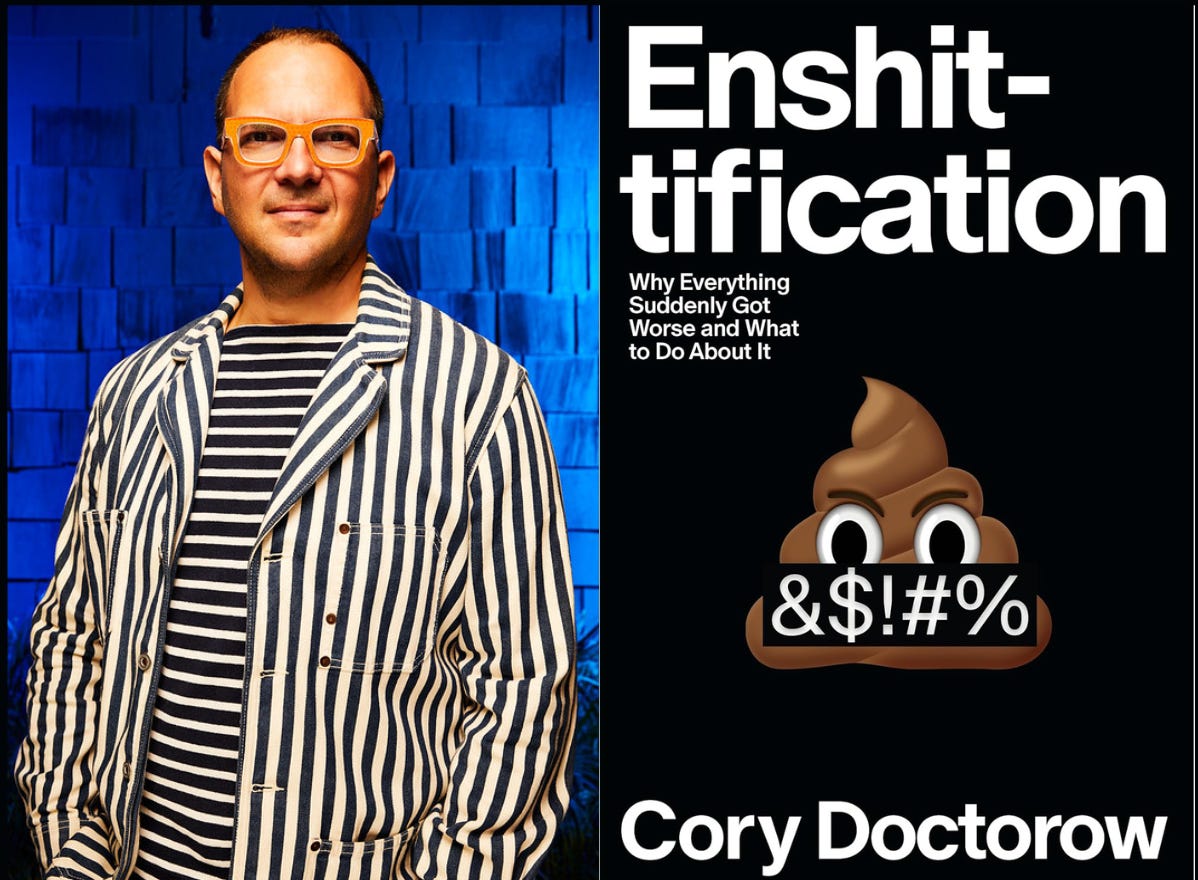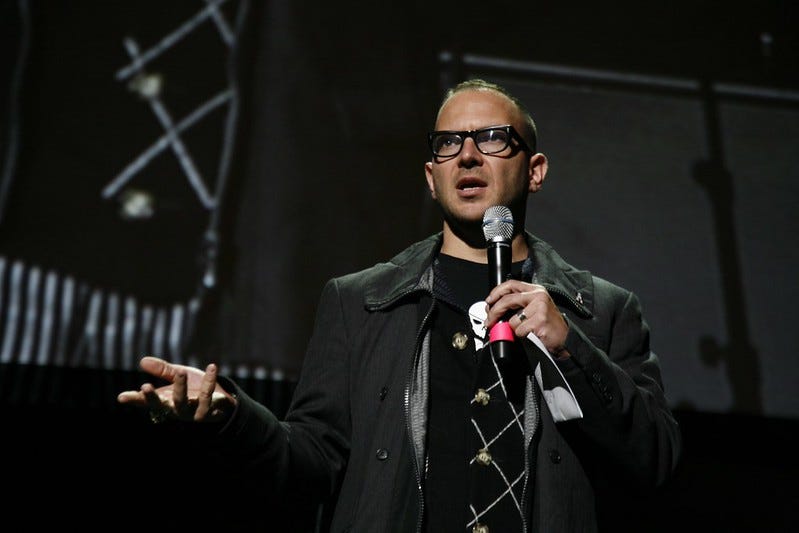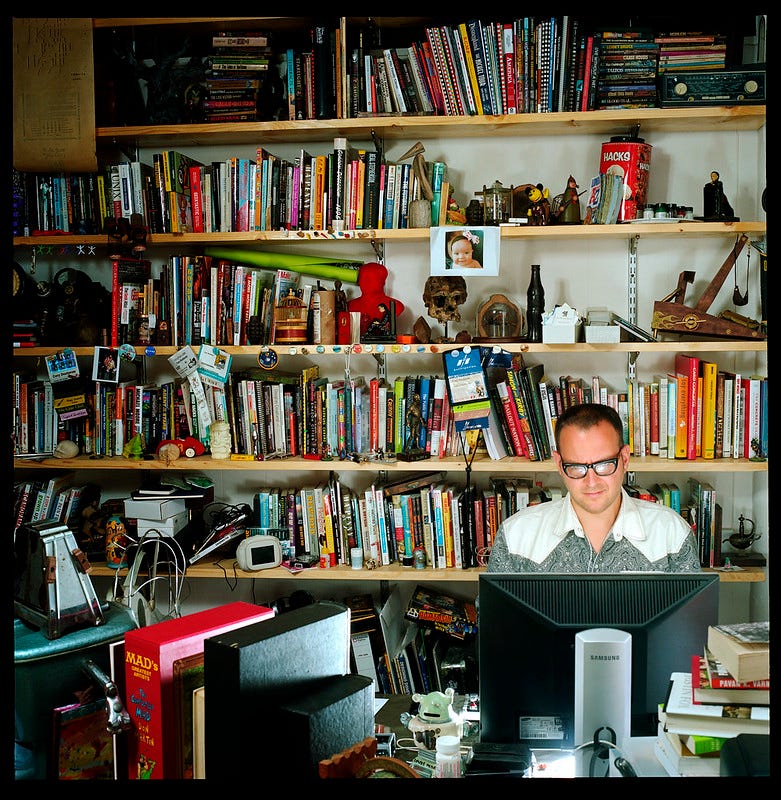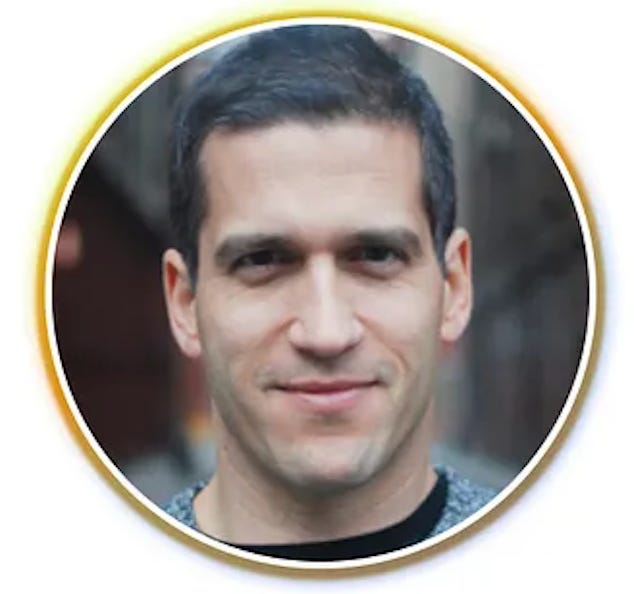How to Unbreak the Internet
Author and digital rights activist Cory Doctorow on creativity, community, and the fight for a fairer online world.

Cory Doctorow has spent his career fighting for a freer digital world—one where creativity, connection, and fairness aren’t crushed by monopolies and algorithms. A science fiction novelist, journalist, and longtime technology activist, he’s the author of more than two dozen books, including Walkaway, Little Brother, The Internet Con, and, most recently, Enshittification: Why Everything Suddenly Got Worse and What to Do About It.
In his new book, Doctorow expands on the viral term he coined to describe the way once-great platforms rot from the inside out—first serving users, then shareholders, until there’s nothing left but ads and frustration. But Enshittification isn’t just a diagnosis; it’s a roadmap for repair. Doctorow shows how we got here, who broke it, and how we can fight back through better policy, smarter regulation, and collective action.
A special advisor to the Electronic Frontier Foundation and a tireless advocate for open systems, Doctorow’s work—fiction and nonfiction alike—is driven by the same impulse: to remind us that the internet, like storytelling itself, belongs to the people who build it, use it, and imagine what it could be.
In this Author Insider Questionnaire, he talks about hammocks, Harlan Ellison, and why writing is mostly about doing the work when you’re not inspired.
21 Questions with Cory Doctorow
1. I couldn’t have written my last book without…
My backyard hammock.
2. What’s the thing most people get wrong about being a writer?
The role of inspiration. Writing is about doing the work when you’re NOT inspired.
3. What’s something you wish you’d started doing five years ago?
Doing 5 minutes of daily dusting/tidying, working my way around my house and office.
4. Hemingway wrote standing up; Edith Wharton, lying down. What are your quirks?
I work in a hammock, summer and winter, wearing a survival suit and swaddled in two electric slankets in the winter.
5. Do you read your reviews?
Yes.
6. Have any tech tools made your job easier?
A Framework laptop, which, by design, can be fixed by its owner (even one as clumsy and error-prone as me). I dropped it on tour and broke the screen, got a new one FedExed to my next hotel, did the swap in 15 minutes at midnight after checking in, and was up and running the next morning to do two conference talks and write a column.
7. How has AI changed your writing process?
I now get distracted from writing by having to explain to people that AI is an irrelevant financial bubble whose tools are grossly oversold and will largely disappear after the market crashes and takes down the debt-burdened data centers.
8. How do you keep track of new ideas?
I turn everything that seems important into a blog post, which I publish for public consumption, which makes me think it through and also embeds it in a database that I can consult later.

9. What’s the best piece of professional advice you’ve ever received?
Write every day.
10. And the worst?
Stop messing around with the internet, it’s a waste of time (Harlan Ellison, when he was my writing instructor in 1992).
11. Coffee, tea, or something stronger?
Aeropress coffee, bourbon finished in cabernet casks, rum finished in cognac casks.
12. What do you wish you’d known when you were starting out?
Experienced writers have no idea how to break into the field as it stands today. Don’t listen to them.
13. Where do you find new ideas?
2,000 RSS feeds collected over 20+ years.
14. Foreign rights, audio rights, film rights: which have been the most valuable to you?
Audio.
15. Can you describe your ideal workday?
Wake at 5 AM, make coffee, get in the hammock, read the news, and answer email until 6:30. Make coffee for my wife and do 20 min of yoga/physio. Blog until 12. Swim in the pool across the street. Get my mail at the PO box. Read a book. Cook a nice dinner. Read another book.

16. How does that compare to your actual workday?
When I’m not on a book tour and when I can fob off people who want to talk on the phone, it’s pretty close.
17. Is there a book you wish you’d written?
There are a billion books I wish I’d written. Comparison is the thief of joy.
18. Whose career do you most admire and why?
Ted Chiang. The guy writes a PERFECT short story every 2 - 3 years, NEVER misses.
19. What is your new book about?
The way that tech bosses, shriven of the discipline of markets or regulation or their workforce or competing technology, destroyed technology and created the conditions for fascism.
20. Kiss, marry, kill: podcasts, newsletters, and speaking gigs.
I’d marry all three.
21. What’s on your nightstand right now?
A Soviet space program souvenir lamp.
Thanks to Cory for taking the time to share his perspective on writing, technology, and the creative life. His answers are a reminder that even in an era of platform collapse and algorithmic nonsense, imagination—and persistence—are still revolutionary acts.
To explore more of his work, visit craphound.com or check out his new book, Enshittification: Why Everything Suddenly Got Worse and What to Do About It.
Thanks for reading,
— Panio Gianopoulos
Editorial Director, Author Insider & The Next Big Idea Club
✍️ Save Your Spot!
We have a series of fantastic Author Insider AMA (Ask-Me-Anything) sessions coming up, featuring some of the sharpest minds in writing, publishing, and audience building.
📅 Thursday, October 16th, at 1 p.m. ET — RSVP here
Garrett Perkins: How to Sell More Books (and Make Them Count)
Forget old-school book retail. Garrett Perkins, from Givington’s—the e-commerce platform that helps authors sell directly to their fans—shares tested strategies for building your audience and boosting your numbers.
📅 Thursday, October 30th, at 1 p.m. ET — RSVP here
Louise Dean: Turning Your Idea into a Finished Book
The award-winning novelist and founder of The Novelry reveals her practical, proven process for developing your story from first spark to final draft.

